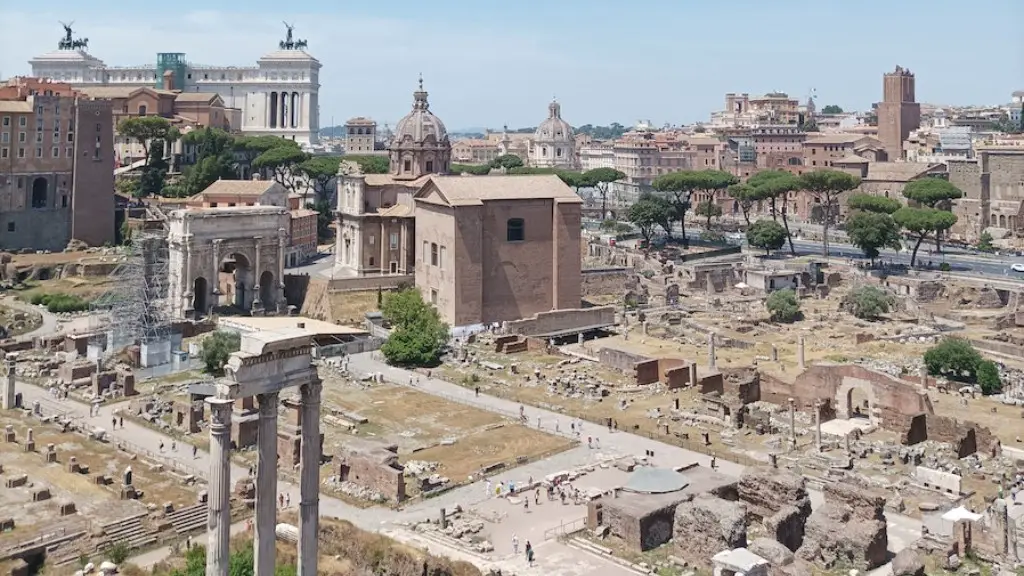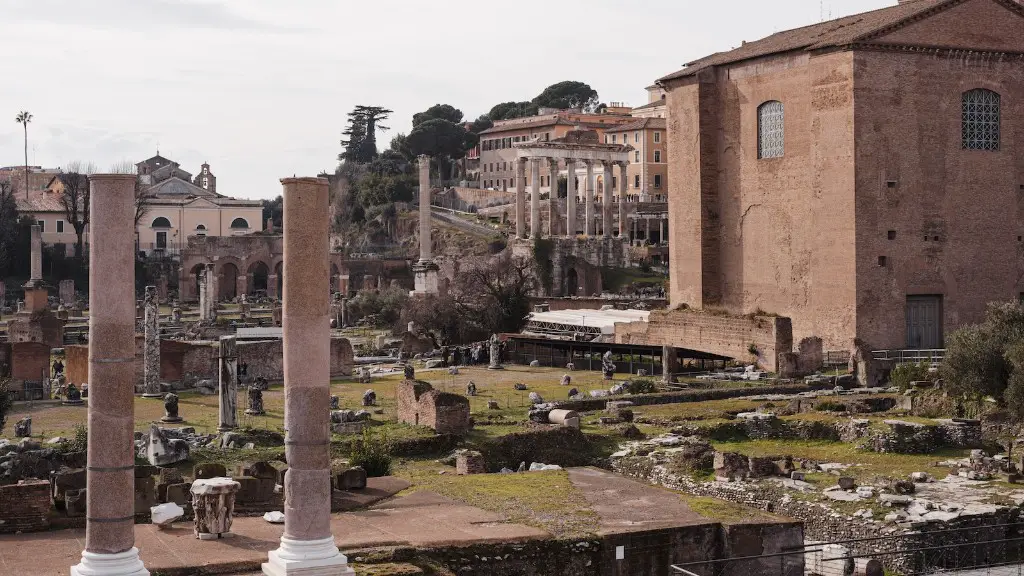Modern Society from the Perspective of Ancient Romans
The Roman Empire was one of the most powerful empires in the world and it’s history is still relevant even if most of its structures are gone. The culture and values that the Romans promoted have been strongly imprinted in society and have influencd the way we think and act. In the context of modern society, an interesting question is what ancient Romans – if they had the chance – would think of our electronic, globalized world.
To answer this question, we can look at the way ancient Romans used to live and think to better understand their likely opinion on today’s world. Firstly, Romans were concerned with order and hierarchy and they liked to be able to predict the future and know what was coming. This view was heavily reflected in their legal and social systems, religion and political structure. In addition, Romans had strong concerns when it came to morality, particularly in terms of public behaviour and the division between the public and private arenas.
One aspect of modern society that would probably confuse Romans is our advanced technology and the rapid pace in which it develops. In their time, most technological innovations first had to be approved by authorities in order to be approved and released. On the other hand, today’s technology is based on an innovation mentality, and improvements can happen very quickly.
Moreover, Romans would also be puzzled by the concept of a truly global world. For example, the level of connection between nations is remarkable compared to ancient times, as well as the sheer number of countries and the different political, religious and cultural systems they have. Of course, Rome had their own extensive network of roads and even a postal system, however the level of global integration today is something completely different.
In terms of public and private morality, modern society is quite different to that of ancient Rome. It is no secret that ancient Romans used to do things which are not accepted in modern society and this would definitely shock Romans of today. This includes different activities such as homosexuality, which was thought to be a sin in ancient Rome but today is recognized as a normal and healthy lifestyle.
Family and Social Structures
Finally, Romans would be struck by our modern family and social structures. In ancient Rome, the patriarchal system was strongly enforced and marriages were arranged in order to protect a family’s reputation, wealth and social status. On the other hand, today’s society has embraced the idea of individuality, with couples having the freedom to marry out of love and establish a family based on their own decisions. This freedom and equality across genders would be hard to grasp for the ancient Romans.
Access to Information
In addition to technological advancements, the sheer amount of information that we can access today would be absolutely remarkable to the ancient Romans. For example, it is now possible to research, digest and learn about anything almost anywhere and at any time. This is particularly noticeable with media and entertainment, where access to books, TV shows, movies, music and other content is massive and unrestricted by geographical boundaries.
Political Freedoms
By looking at political freedoms, ancient Romans would be impressed with modern society. In their time, citizens had very limited rights and they had to follow the will of their leaders. On the other hand, global democracy and self-rule have become the norm in many countries, allowing citizens to truly have a say in the affairs of the nation. These freedoms are respected and appreciated in many modern societies, something which was not even an idea during the time of the Roman Empire.
Religion and Superstition
Religion was an important part of the Roman Empire. They believed in many gods, which protected them and provided a moral compass when it comes to doing right and wrong. Nowadays, religion is still a massive part of many societies, however it is now more about personal choice and beliefs as opposed to a central religion that is enforced across all citizens of a country. This makes us far more open-minded and tolerant in terms of different cultures and religions, something that the Ancient Romans would definitely appreciate.
Economic Growth
When it comes to economic growth, the Romans would be very pleased and surprised by how far their successors have come. Advancements in economic growth, especially when it comes to the development of financial markets, banking systems and different forms of currency, would have them amazed. This is especially true with the growth of the internet and e-commerce, as these technologies have completely changed the way business is conducted.
Quality of Life
Overall, it is likely that ancient Romans would be very pleased with the kind of modern society their descendants have created. Quality of life has been completely transformed and today people can have a quality of life that was unimaginable to the ancient Romans. These changes include advances in healthcare, longevity, the human rights movement, the improvement of living conditions and educational opportunities, the growth of civil rights, and the emergence of modern entertainment.
Communication and Social Interaction
In terms of communication and social interaction, the ancient Romans would be excited to see how far we have come. Letter writing was an important tool for them to communicate with people, but today we have access to things like telephone, internet, social media and instant messaging. All of these make it easier for people to stay in touch with each other and access information from around the world.
Final Thoughts
In conclusion, it is likely that the ancient Romans would be enthusiastic towards modern society and its advancements. They would be amazed by our technological, economic and societal developments, and would certainly appreciate the quality of life and freedoms that are now enjoyed in many parts of the world. By taking a look at what the Ancient Romans valued and comparing it to today’s world, it is possible to understand what they might think of life in the 21st century.


